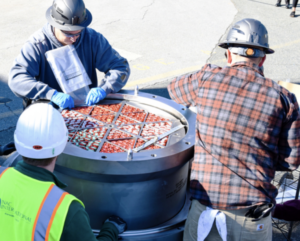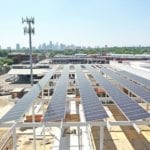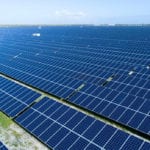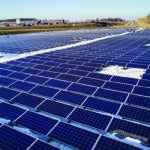As the economic crisis brought on by the COVID-19 pandemic evolves, one thing has become very clear – the solar industry is at risk. A survey of our member companies conducted over the past ten days provides further proof points to this story: the data clearly shows that solar companies and workers are being put out of business and put out of work by COVID-19.
This is first and foremost a public health crisis. It’s also true that there are major impacts throughout the U.S. economy, including the growing solar energy economy, which employed 250,000 Americans last year. We need to take care of workers and families first and then quickly turn to rebuilding our economy. Congress has taken critical steps with their first three bills to address the crisis, including economy-wide recovery measures that will help support solar businesses. But industry-specific support is still needed to recharge the clean energy economy.
The solar industry is resilient, but our companies are facing serious challenges that are preventing them from keeping their doors open and keeping employees on the payroll. Our first priority is to protect these workers and their families. Our next priority is creating a policy environment that gives the solar industry the tools it needs to create long-term growth. With the right policies, solar can be a key contributor to economic recovery and getting the economy back on track. Before the pandemic hit, the solar industry was poised to take off and solar installer was the fastest growing job category.
As policymakers explore options for supporting workers during this crisis, and reinvigorating a struggling economy, we wanted to share the data from our survey publicly, to demonstrate the hardships faced by solar workers. As of the close of our first survey on Sunday, 22% of respondents were making workforce reduction plans. These numbers are already looking like the low end: of the first 80 responses to our second survey, 40% of respondents report staffing reductions, representing a 17% reduction in their reported workforce.
If you work in the solar industry, please fill out this survey so we can closely track this rapidly changing situation and advocate for protecting solar workers.
According to a national survey by Navigator, the economic impact is not only being felt nationally, but personally. A majority (60%) of Americans are now uneasy about their personal financial situation, up 13 points from earlier in March (47%).
- Forty-one percent (41%) of Americans say someone they know personally has lost their job due to the pandemic;
- Six-in-ten (61%) say they know someone who has lost hours at work as a result of the crisis.
More than 75% of solar companies have fewer than 50 employees. These small businesses represent the backbone of the American economy, and the concerns they’ve voiced to us are troublesome. The survey respondents were very concerned or moderately concerned about construction delays (86%), supply chain and equipment delays (84%), permitting delays (81%) and customer acquisition (81%). Any one of these issues could be a huge problem on its own, but together they compound. They prevent projects from even getting boots on the ground or on the roof. It’s notable that companies became significantly more concerned in all areas as the survey period of 3/13-3/22 went on. The chart below tells a clear story: things are bad and getting worse.
Here are just a few of the stories our companies have told us in surveys, emails and press reports:
- Cancellation rates for residential solar systems are now extremely high, hitting upwards of 50% in some sectors. This is leading to jobless installers, which was previously America’s fastest growing profession. Retail solar sales in big box stores are being curtailed or eliminated, following the termination of door to door sales.
- One company today told us they have already seen a 60% drop in sales.
- Companies are reporting complete work stoppage and sales lost for six months to a year.
- One company with 350 employees completely shut down this week.
- Orders for shipments are being cancelled left and right, hurting manufacturers. Companies are reporting 90- to 130-day delays for products.
- In Pennsylvania, a company laid off all of their field staff and is concerned about their ability to re-mobilize after the crisis subsides, underscoring the need for immediate relief for longer-term economic stimulus measures to be effective.
- Financing is freezing for some. More than 63% of respondents are concerned that they can’t get access to tax equity.
All of these data points tell us a clear story: the solar industry needs policies to protect and support workers as a result of this awful virus. Nothing less than the future of our clean energy economy is at stake. We are working with Congress to find solutions to this health and economic crisis and we will keep you posted on our findings as we fight through this difficult time in America’s future.
—Abigail Ross Hopper is president and CEO of the Solar Energy Industries Association. This post was originally published here.









